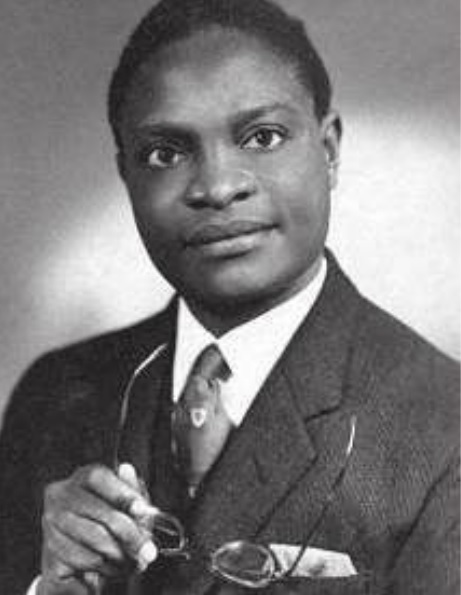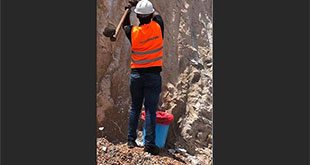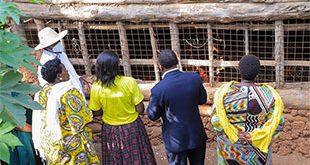After the 1949 uprising farmers and the “BATAKA BU” (which literally means –“the sons of the Buganda soil or Buganda land”) used to hold their meetings at the Kabaka’s Lake led by I.K. Musazi and Omutaka Miti Kabazzi.
Abu Mayanja used to walk all the way from Makerere University to attend these meetings. So on March 2, 1952 when I.K. Musazi asked who would be the Secretary General, others feared and Abu Mayanja came forward to take the job.
He straightaway issued a press statement announcing the formation of Uganda National Congress and he used the postal address of the University. The European newspapers in Kampala and Nairobi (at that time Uganda Herald and the East African Standard) came out with banner headlines that announced: `POLITICS ENTERS MAKERERE’.
Both I.K. Musazi and Abu Mayanja were in combative mood after launching UNC and they traversed the whole of Uganda preaching to the people and calling for “Independence Now” which was the motto and rallying call of UNC.
At the time, Sir Andrew Cohen was the British governor -1950-1955.
A shrewd and far sighted and visionary administrator, Cohen was not much liked by the Baganda because he had exiled Sekabaka Sir Edward Mutesa II on November 30, 1953. But there was something extremely good which he did for Abu Mayanja.

Abu Mayanja did not last long at Makerere, because during that very year 1952 he organised a students’ strike at Makerere because of “bad food”. He was expelled together with Josephat Karanja and Isack Omolo Okello both from Kenya and another student from Tanganyika (now Tanzania).
The Governor, Sir Andrew Cohen initiated a good educational development programme to train Africans who would take over jobs in the Civil Service and run the Country in the later years before and after the country had achieved Independence.
The Governor advised the Buganda Minister for Finance (Omuwanika) who was Latima Mpagi to set up a Scholarship Fund of UK£400,000 from the coffee earnings for Buganda students.
The Kabaka’s Government made announcements for the young Baganda to apply and the Governor was the one to approve all the applications.
The Governor had already spotted the young Abu Mayanja as an extremely intelligent person and very argumentative.
The young Abu Mayanja applied for the scholarship and the Governor had to approve it.
One morning Abu Mayanja hired a small car and drove to Entebbe Government House now State House.
Arriving at the Secretariat, Mayanja found European Civil servants with melancholy faces waiting for him. Some of them tried to block his way so that he could not meet the Governor.
The Chief Secretary did not support Mayanja’s application because he had been sacked from Makerere and he was a fiery politician and a UNC Secretary-General. But Governor Cohen overruled them: “Let the young man come to see me in my office”.
Governor Cohen then made a wonderful statement. He said: “If we are going to have political opponents and there is no way we are going to avoid them; for god’s sake let us have them at least educated”.
He made this statement after signing Mayanja’s scholarship application forms and awarding him a scholarship to study at Cambridge University in London.
Abu Mayanja, smiling broadly, shook the Governor’s hand.
Governor Cohen had also been educated at Cambridge University. Sending Mayanja to the same university showed how much he favoured him.
Former Katikiro of Buganda, Mayanja-Nkangi who was educated with Abu Mayanja both at King’s College Budo and Makerere University described Abu Mayanja as a true Muslim. He was apparently untouched spiritually by the Christian influence which had shaped his vibrant intellect. He was truly an embodiment of Muslim intellectualism of which every Muslim in Uganda must be proud of.
Abu Mayanja was deeply sensitive to injustice and this made him an unpaid advocate of the injured. He first served as a Minister for Education in the Kabaka’s Government in 1958. He was part of the Buganda delegation in London which approved the 1962 Independence Constitution. He was also imprisoned by Milton Obote and freed by Idi Amin in 1971.
He was a Minister in the first Amin Government with other highly educated people like the late Apollo Kironde.
He later fled into exile after Amin soldiers arrested him and put him in the car boot. His wife drove very fast to Amin’s office and wept that her husband has been bundled into the boot of an army vehicle. The car soon arrived at Amin’s office and Abu Mayanja was taken out. He was set free and straightaway fled to Nairobi.
In Nairobi, he organised a liberation movement together with other Ugandan exiles to overthrow the tyrannical regime of Idi Amin.
In the 1980 general elections he contested in Busujju but was cheated and later concentrated on farming and he opened a law firm in the King Fahd Plaza which is now run by his sons who took their father’s profession.
He was a Minister for Justice and Constitutional Affairs in the first NRM Government. Later on when the NRM Government tried to introduce Regional Tier in Buganda he advised the Kabaka Sabasajja Ronald Muwenda Mutebi not to accept it.
He was reported to have said to the Kabaka- “Your father Sir Edward Mutesa II fought for this Kingdom; it was only the gun which took it away from his hands. Later on the Baganda fought Obote and they restored it. If you accept Regional Tier you will have given away your Kingdom”. The Kabaka heeded Mayanja’s advice.
It was strongly rumoured that because of that advice the Kabaka was considering appointing him Katikiro to succeed Joseph Semwogerere but he suddenly died.
I was with Abu Mayanja right from 1958 when we were both in UNC in Katwe and Kololo, and again in Nairobi. When I came back from exile I used to consult him on so many issues because we were both writing in the New Vision.
He produced very many children and he educated all of them at King’s College Budo. Unfortunately none of them has become a politician.
I one day told Abu Mayanja to take some of them to the famous Namilyango College, my school, because it was the first College in Uganda and in east and central Africa. He replied: “I want to thank and be grateful to the NAC and the Anglican Church who educated me right from Primary to University and King’s College Budo was my school”.
His wife, Mariam Nkalubo Mayanja is the Minister for Cultural Affairs in the Kabaka’s Government. May Abu Mayanja’s soul rest in everlasting eternal peace.
****
KAVUMA-KAGGWA is an Elder from Kyaggwe, Mukono District
Tel: 0772-584423
****
editor@independent.co.ug
 The Independent Uganda: You get the Truth we Pay the Price
The Independent Uganda: You get the Truth we Pay the Price



